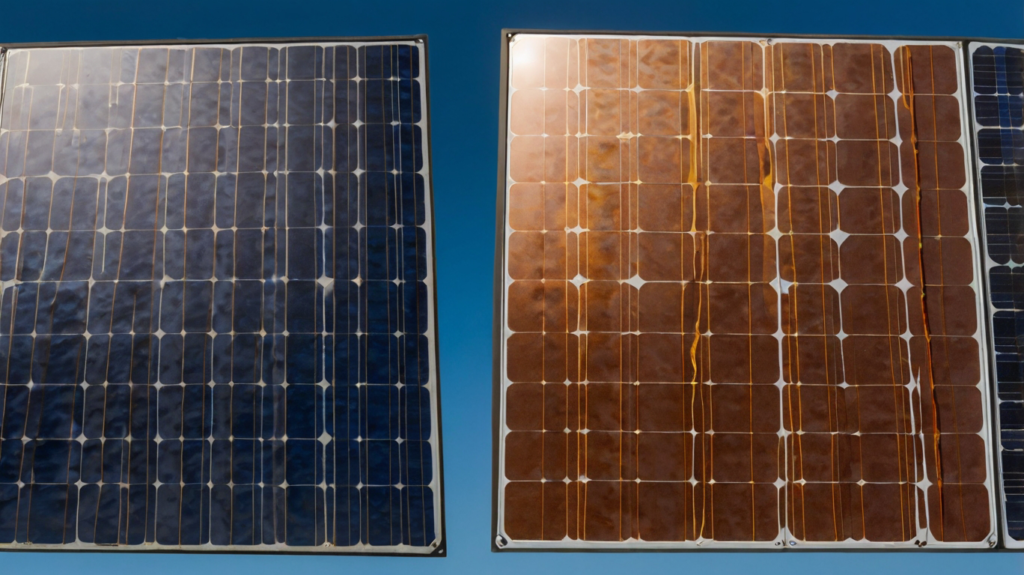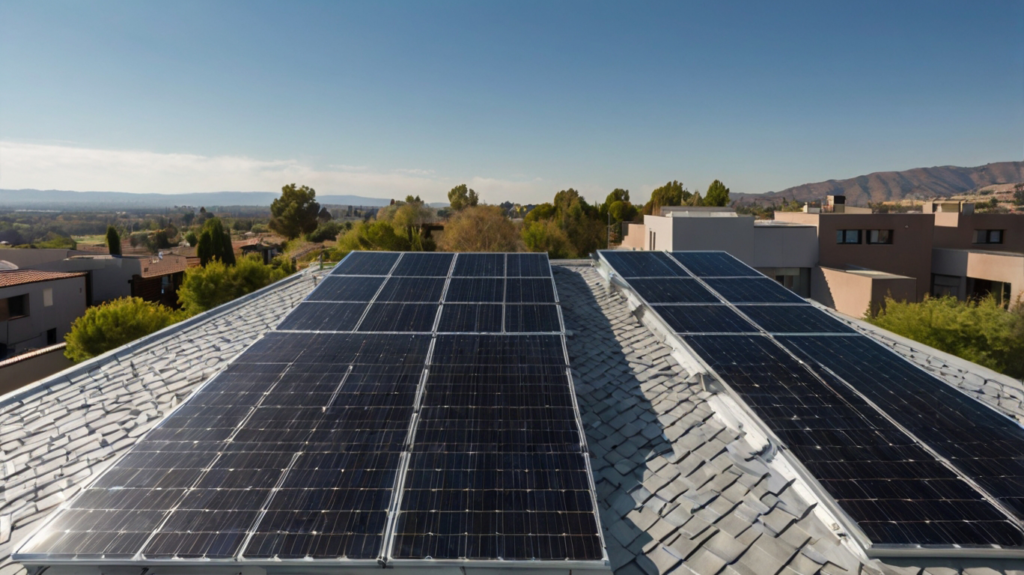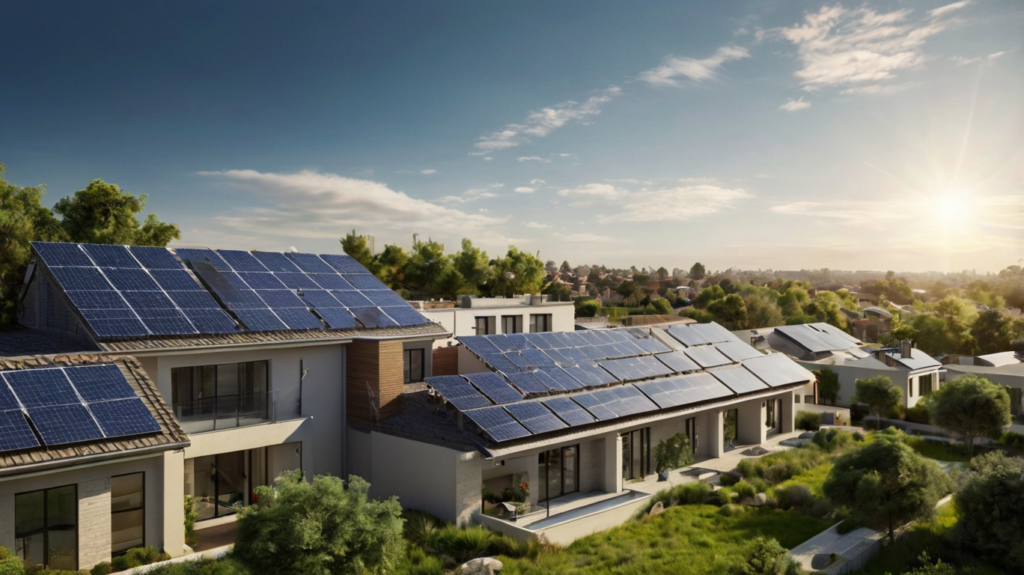When considering a solar power system for your home or business, choosing the right type of solar panel is a critical decision. Different types of solar panels offer varying levels of efficiency, power output, and cost-effectiveness. In this article, we’ll compare the main types of solar panels—monocrystalline and polycrystalline—to help you determine which is best suited for your needs.
Understanding Solar Panel Types
Solar panels are categorized based on the type of solar cells they use. The two most common types are:
- Monocrystalline Solar Panels: These are made from a single, continuous crystal structure. They are easily recognized by their uniform dark appearance and rounded edges.
- Polycrystalline Solar Panels: These are made from multiple silicon crystals melted together. They have a speckled blue appearance and square-shaped cells.

Monocrystalline Solar Panels
Efficiency and Power Output
Monocrystalline solar panels are renowned for their high efficiency and power capacity. They typically achieve efficiencies of over 22%, making them the most efficient solar panel type available. Many monocrystalline panels provide a power capacity of over 300 watts (W), with some models even exceeding 400 W. This makes them ideal for applications where space is limited but high energy output is needed.
Durability and Lifespan
Monocrystalline panels are highly durable and often come with warranties of 25 years or more. Their single-crystal structure allows them to perform well in low-light conditions and maintain their efficiency over time.
Cost
The advanced manufacturing process of monocrystalline panels makes them more expensive than their polycrystalline counterparts. However, their superior efficiency often translates into long-term cost savings on energy bills.

Polycrystalline Solar Panels
Efficiency and Power Output
Polycrystalline solar panels typically have lower efficiency, rarely exceeding 17%. They also offer lower power capacities compared to monocrystalline panels. This means you might need more polycrystalline panels to generate the same amount of energy.
Durability and Lifespan
While polycrystalline panels are also durable, their performance in low-light conditions is not as strong as monocrystalline panels. They generally have similar warranties but may degrade slightly faster over time.
Cost
Polycrystalline panels are more affordable, making them a popular choice for budget-conscious consumers. However, their lower efficiency means you may need more panels, which could offset the initial cost savings depending on your energy needs and available space.
Comparing Monocrystalline and Polycrystalline Panels
| Feature | Monocrystalline | Polycrystalline |
|---|---|---|
| Efficiency | Over 22% | Up to 17% |
| Power Capacity | 300–400+ W | Lower, often below 300 W |
| Space Requirement | Less (high efficiency per square foot) | More (lower efficiency per square foot) |
| Cost | Higher upfront cost | Lower upfront cost |
| Performance in Low Light | Better | Moderate |

Choosing the Right Solar Panel for You
The best solar panel type for you depends on several factors:
- Available Space: If you have limited roof space, monocrystalline panels are the better option due to their high efficiency and power output.
- Budget: If you are working with a tighter budget, polycrystalline panels may be more cost-effective. However, consider the long-term savings from energy efficiency when making your decision.
- Energy Needs: For households or businesses with high energy demands, the superior efficiency of monocrystalline panels may make them worth the higher initial investment.
- Aesthetic Preferences: Monocrystalline panels have a sleek, uniform look that some people find more visually appealing, while polycrystalline panels have a bluish, speckled appearance.
Conclusion
Both monocrystalline and polycrystalline solar panels have their advantages and disadvantages. Monocrystalline panels offer the highest efficiency, power output, and long-term savings but come at a higher cost. Polycrystalline panels are more affordable upfront but may require more space and offer lower efficiency.
Ultimately, the best solar panel type for you will depend on your specific needs, budget, and available space. By carefully considering these factors, you can make an informed decision and enjoy the many benefits of solar energy.
